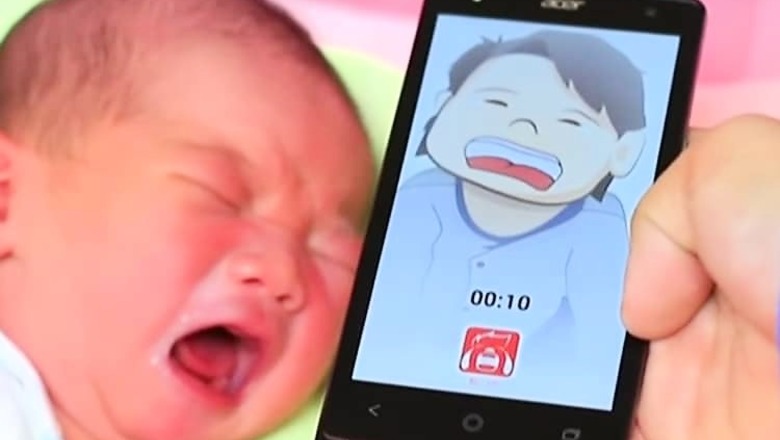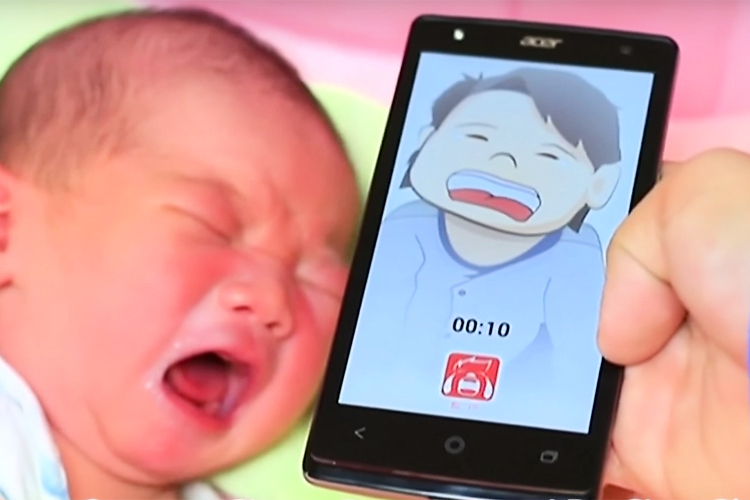
views
An app that can differentiate between a variety of crying sounds made by babies has been developed by Taiwanese researchers.
The Infant Cries Translator was developed at the National Taiwan University Hospital Yunlin and can differentiate between four separate crying sounds by recording the sounds of babies and comparing them against a vast database.
Over a two year period researchers collected around 200,000 crying sounds from approximately 100 new-born babies, and uploaded them to an online database. Analysis of the frequency of individual screams among these helped researchers, led by Chang Chuan-yu and Dr Chen Si-da, distinguish subtle differences in acoustics.

The resulting app shows analysis of a baby's cries on the user's phone within 15 seconds. Researchers say the app has an accuracy of 92 percent for infants under two weeks old, helping inform parents when their child is hungry, sleepy, in pain, or has a wet diaper. The analysis becomes less accurate the older the baby is.
"The Infant Cries Translator can differentiate four different statuses of sounds of baby crying, including hunger, the diaper getting wet, sleepy and pain," said Chuan-yu. "So far, according to the feedback from users, the accuracy of the app we've tested can reach 92 percent for babies under two weeks old. As for the babies under one or two months, the accuracy of the app can also reach up to 84 or 85 percent. Even for the four month old baby, the accuracy can reach 77 percent."
Its creators say there is little point using the app past the age of six months because the baby has become more affected by its environment, but they believe it will be a useful tool for parents, especially those with their first child.
The app constantly updates its database to a Cloud Drive. Its machine learning algorithm means that mothers and fathers can set up a personal setting for their infant, based on the parents' feedback.
"After downloading this app, we only need to set the birth of date and nationality for the new born baby," said Chang. "Once the baby cries, we only need to press the recording button for 10 seconds, and the sound will be uploaded to the Cloud Drive. After the differentiating process, the analysis result of the sound would be transferred to Mum's mobile phone. So Mum can depend on the actual situation to determine whether the analysis result is correct or not, to make a revision for the app."
Forty-one-year-old new father Guo Young-ming, began using the app on December 21, four days after his baby daughter was born.
"For the new parent like us, we are most afraid of seeing the baby crying and then not knowing what we should do. When we don't know what we should do, this app can make some simple judgments for us, so we are able to know what our next step is," he said.
According to pediatrician Chen, "when the new born babies are feeling hungry, they would have a typical response called 'Sucking Reflex'. Their mouths would wriggle uncontrollably, and their tongue would lick their lips, even turning their heads to look for the breast for breast-feeding. So we can accurately understand the cause of this reaction is hunger on the basis of the medical judgment. Adding our app to make a judgment the parents don't have to have medical knowledge. They can rely on this app to analyze the sound to know their babies are hungry, so it has a big help to take care of their babies."
The Infant Cries Translator is available on iOS and Android via the App Store, and also Google Play, since early 2015 at a cost of $2.99.




















Comments
0 comment